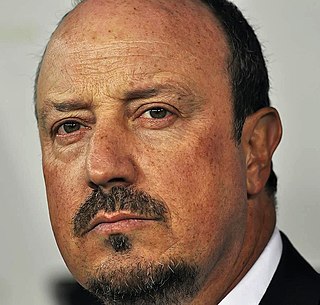A Quote by Lou Holtz
After landing his invasion forces on the shores of some country, the sixteenth-century Spanish conquistador Hernan Cortes would immediately burn his own boats. He was sending his army a message: "We can't turn back. Either we succeed here or we die here." Excuses were not an option.
Related Quotes
If there were only some way of contriving that a state or an army should be made up of lovers and their beloved, they would be the very best governors of their own city, abstaining from all dishonour, and emulating one another in honour; and when fighting at each other's side, although a mere handful, they would overcome the world. For what lover would not choose rather to be seen by all mankind than by his beloved, either when abandoning his post or throwing away his arms? He would be ready to die a thousand deaths rather than endure this.
I am content to live and die as the mere repeater of Scriptural teaching - as a person who has thought out nothing and invented nothing - but who concluded that he was to take the message from the lips of God to the best of his ability and simply to be a mouth for God to the people. - mourning much that anything of his own should come between - but never thinking that he was somehow to refine the message or to adapt it to the brilliance of this wonderful century and then to hand it out as being so much his own that he might take some share of the glory of it.
He[Napoleon] had destroyed only one thing: the Jacobin Revolution, the dream of equality, liberty and fraternity, and of the people rising in its majesty to shake off oppression. It was a more powerful myth than his, for after his fall it was this, and not his memory, which inspired the revolutions of the nineteenth century, even in his own country.
We turned onto the last landing. Going out with this guy, I thought, would involve a lot of silly laughter, some wit--the buzz of his whispered wisecracks in my ear. But there would be as well his willingness to reveal, or more his inability to conceal, that he had been silently rehearsing my name as he climbed the stairs behind me. There would be his willingness to bestow upon me the power to reassure him. He would trust me with his happiness.
The realm of death seems an enemy's country to most men, on whose shores they are loathly driven by stress of weather; to the wise man it is the desired port where he moors his bark gladly, as in some quiet haven of the Fortunate Isles; it is the golden west into which his sun sinks, and, sinking, casts back a glory upon the leaden cloud-tack which had darkly besieged his day.
Every man should write a brief history of his life: his parentage, his birth, his religion, when he was baptized and by whom, when ordained, what to, and by whom-give a brief sketch of all his missions and of all his official acts and the dealings of God with him. Then if he were to die and the historians wished to publish his history, they would have something to go by.
Patriotism, or the peculiar relation of an individual to his country, is like the family instinct. In the child it is a blind devotion; in the man in intelligent love. The patriot perceives the claim made upon his country by the circumstances and time of her growth and power, and how God is to be served by using those opportunities of helping mankind. Therefore his country's honor is dear to him as his own, and he would as soon lie and steal himself as assist or excuse his country in a crime.
Jim Jones wanted his people to believe the establishment was trying to kill him because whites were threatened by his message of racial equality. He used the incident to close ranks and turn anyone who disagreed with him into a menace. He warned his congregation that a would be assassin might try to infiltrate their church, so they had to prove their loyalty to him by never questioning his orders. Dissenters became traitors.
The whole life of Christ was a continual Passion; others die martyrs but Christ was born a martyr. He found a Golgotha even in Bethlehem, where he was born; for to his tenderness then the straws were almost as sharp as the thorns after, and the manger as uneasy at first as his cross at last. His birth and his death were but one continual act, and his Christmas day and his Good Friday are but the evening and morning of one and the same day. And as even his birth is his death, so every action and passage that manifests Christ to us is his birth, for Epiphany is manifestation.
To live his life in his own way, to call his house his castle, to enjoy the fruits of his own labour, to educate his children as his conscience directs, to save for their prosperity after his death -- these are wishes deeply ingrained in civilised man. Their realization is almost as necessary to our virtues as to our happiness. From their total frustration disastrous results both moral and psychological might follow.






































